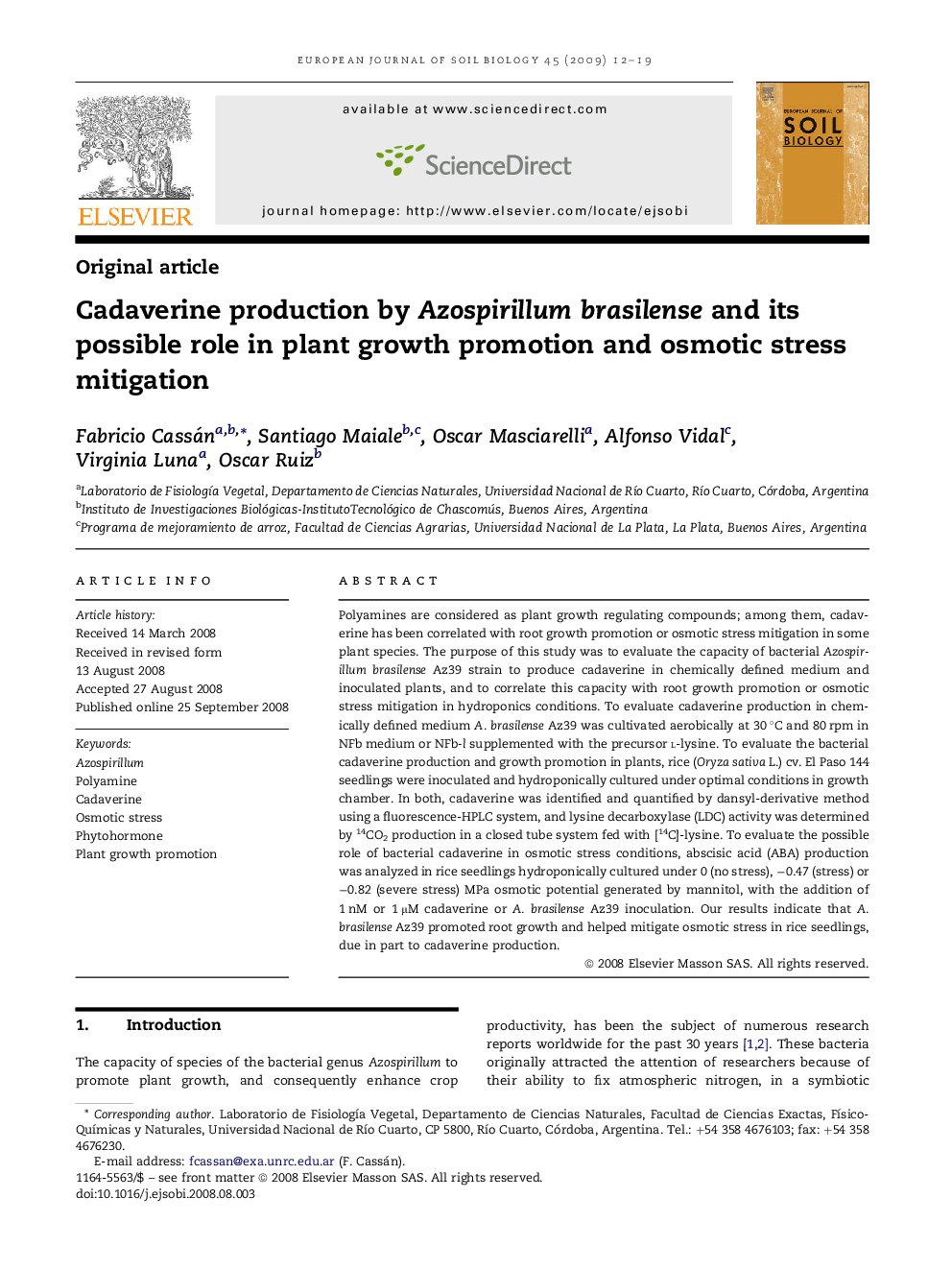| Article ID | Journal | Published Year | Pages | File Type |
|---|---|---|---|---|
| 4392290 | European Journal of Soil Biology | 2009 | 8 Pages |
Polyamines are considered as plant growth regulating compounds; among them, cadaverine has been correlated with root growth promotion or osmotic stress mitigation in some plant species. The purpose of this study was to evaluate the capacity of bacterial Azospirillum brasilense Az39 strain to produce cadaverine in chemically defined medium and inoculated plants, and to correlate this capacity with root growth promotion or osmotic stress mitigation in hydroponics conditions. To evaluate cadaverine production in chemically defined medium A. brasilense Az39 was cultivated aerobically at 30 °C and 80 rpm in NFb medium or NFb-l supplemented with the precursor l-lysine. To evaluate the bacterial cadaverine production and growth promotion in plants, rice (Oryza sativa L.) cv. El Paso 144 seedlings were inoculated and hydroponically cultured under optimal conditions in growth chamber. In both, cadaverine was identified and quantified by dansyl-derivative method using a fluorescence-HPLC system, and lysine decarboxylase (LDC) activity was determined by 14CO2 production in a closed tube system fed with [14C]-lysine. To evaluate the possible role of bacterial cadaverine in osmotic stress conditions, abscisic acid (ABA) production was analyzed in rice seedlings hydroponically cultured under 0 (no stress), −0.47 (stress) or −0.82 (severe stress) MPa osmotic potential generated by mannitol, with the addition of 1 nM or 1 μM cadaverine or A. brasilense Az39 inoculation. Our results indicate that A. brasilense Az39 promoted root growth and helped mitigate osmotic stress in rice seedlings, due in part to cadaverine production.
